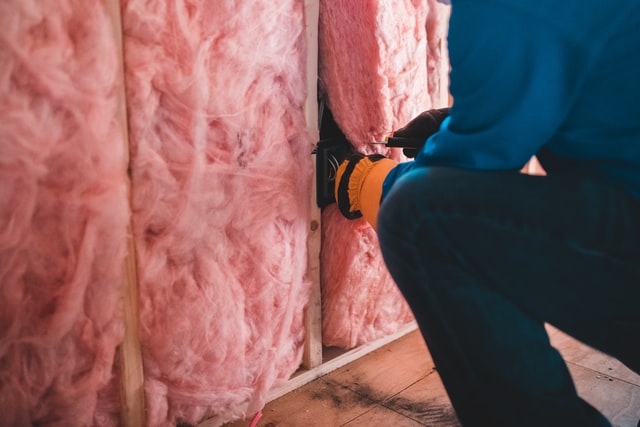If you’re like most people, you probably don’t think about your home insulation until it’s too late. By then, you’ve already noticed the high energy bills, or you’re dealing with a cold house in the winter.  If you see any of these signs, it’s time to replace your home insulation! Read on to find out the five signs that your home insulation needs replacing.
If you see any of these signs, it’s time to replace your home insulation! Read on to find out the five signs that your home insulation needs replacing.
#1: You’re Experiencing Uneven Temperatures Throughout Your Home
If you find that certain rooms in your house are significantly warmer or cooler than others, it could be due to a lack of insulation. Poorly insulated walls and ceilings will naturally cause uneven temperatures throughout the home. This is especially noticeable during the hot summer months, when some rooms may feel much hotter than others. Other signs that could indicate inadequate insulation include cold drafts, icy windows and doors, and mold or mildew.
#2: Your Energy Bills are Going Up Unusually High
Home insulation helps keep the cool air from escaping your home during the summer months and vice versa in the winter months. If you’re finding that your energy bills are unusually high each month, it’s a good indicator that your home isn’t properly insulated. Replacing your old insulation can help reduce energy costs by up to 30%.
#3: You Notice Sagging Ceilings or Wallpaper Peeling Off
If you notice any sagging ceilings or wallpaper peeling off of walls, it could be due to moisture buildup caused by poor insulation. Moisture trapped in walls can create the ideal environment for mold and mildew to grow and cause structural damage to your home. If you see any of these signs, it’s important to get your insulation replaced as soon as possible.
#4: Your Home is Noisier Than Usual
Insulation helps reduce noise from outside sources such as traffic, neighbors, and other environmental noises. If your home is noisier than usual, it could be due to inadequate insulation in the walls or attic. Replacing your insulation can help reduce this noise pollution and make your home a more peaceful place to live in.
The way insulation blocks out noise can also help you detect if it needs to be replaced. If you can hear noises that shouldn’t be coming through, such as conversations or music from outside, then your insulation is probably past its prime and needs to be replaced.
#5: You See Visible Signs of Damage or Deterioration
If you notice any visible signs of damage or deterioration, such as cracking or peeling paint, it could be due to moisture buildup caused by poor insulation. This can lead to mold growth and structural damage over time.
Does insulation stop working right away? No, insulation does not stop working right away. Even when it’s old and worn out, it will still provide some level of protection from the elements. However, as time passes, its effectiveness diminishes, and you may start to notice the signs of inadequate insulation listed above.
What can you do as a Temporary Fix?
If you notice any of the signs that your insulation needs to be replaced, there are a few things you can do as a temporary fix. First, check for air leaks around windows, doors, and switch plates. You can also install weather stripping or caulk around these areas to help reduce energy loss. Additionally, if you have an unfinished attic, you can add extra insulation to help increase its effectiveness.
These are just a few signs that your home’s insulation needs to be replaced. If you’re seeing any of them, it’s important to take action and get your insulation replaced as soon as possible. Not only will this help reduce energy costs, but it will also make your home more comfortable and keep out unwanted noise. Contact a professional like iFoam today for an assessment of your home’s insulation!
Related Posts:
- How to Easily Save Money & Energy by Insulating Your Home
- Simple Home Renovations To Make It More Energy-Efficient
- Surefire Home Design Tips That Enhance Energy Efficiency
- Solar Energy Systems Are Becoming More Popular For Homes
- 7 Tips on Making Your Home More Energy Efficient
- All Seasons Insulation Can Help To Lower Your Energy Bills